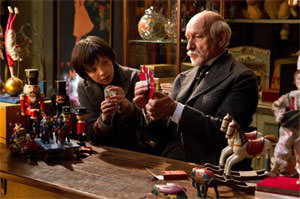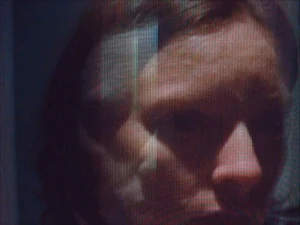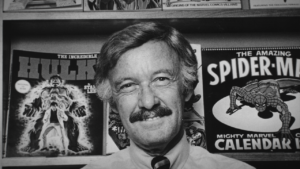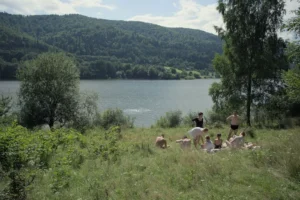‘Hugo’: Resistance Is Futile
I was prepared to dislike "Hugo," sight unseen -- wretched excess and all that -- so you can imagine my surprise (and your own, when, as you inevitably must, you catch up with it) when I found myself utterly captivated by Martin Scorsese’s film. I was prepared to dislike "Hugo," sight unseen—wretched excess and all that—so you can imagine my surprise when I found myself utterly captivated by Martin Scorsese’s film.
“Hugo” cost somewhere between $150 million and $170 milllion to produce — not counting those pesky millions more for prints and advertising. It is probably the most money ever spent on a movie intended primarily for children. I was prepared to dislike it, sight unseen — wretched excess and all that — so you can imagine my surprise (and your own, when, as you inevitably must, you catch up with it) when I found myself utterly captivated by Martin Scorsese’s film.
All that money is up there on the screen, mostly in the form of a humongous Parisian train station, wherein a little orphan boy named Hugo Cabret (Asa Butterfield) keeps its many clocks functioning and eludes the station’s baleful chief inspector (a superbly melancholic/enigmatically angry Sacha Baron Cohen). Eventually the lad befriends the withdrawn and bitter man who runs a toy shop in the station. He turns out to be George Méliès (Ben Kingsley), the pioneering maker of fantasy films, most of which seem to be as lost and forgotten as he is. Mostly through Hugo’s efforts, he is rehabilitated and restored to his rightful historical place.
This much of the story, retold in Brian Selznick’s wondrous book “The Invention of Hugo Cabret,” is in broad outline historically true, and conscientiously retold in John Logan’s very fine screenplay. But that only hints at the magic of this film, which could so easily have been no more than ponderously faithful to its source. It seemed an unlikely project for Scorsese, especially to people who tended to forget that from “Alice Doesn’t Live Here Anymore” through “After Hours” and “Kundun” he had made plenty of pictures that did not involve gangsters and brutal killings. They failed to consider the sheer energy of his filmmaking, his taste not just for complexity of action, but of motivation as well. “Hugo’s” vast set, and the need to fill it not just with motion, but emotion, simply seems to have stirred him to a vast, yet easeful, inventiveness.
There’s all kinds of stuff in this movie — an enigmatic automaton, for instance, the rehabilitation of Baron Cohen’s embittered and crippled character, the development of Chloe Grace Moretz’s delightful Isabelle as fully functioning girlfriend to Hugo — and, of course, this being a Scorsese film, a charming tribute to the delights of early filmmaking. These elements are not merely mentioned in passing; the themes that these plot points carry are all fully worked out. Which accounts for some of the film’s length but does not account for the way it flies past without flurry, but with increasing fascination.
It’s tempting to call this Scorsese’s best work, but I’ll forgo that ultimate superlative. What I will say, is that “Hugo” reminds us that when the spirit moves him, he is a protean filmmaker, a man capable of great complexities of plot and character rendered with great clarity and without straining. As this peculiarly disappointing movie season winds down in more than usual frustration, this oxymoron — a kid picture on an epic scale — somewhat to everyone’s surprise, is being mentioned for (and even winning) some prizes. I am the author of a recent book on Scorsese, and therefore obviously predisposed to his work; I don’t however, think that disqualifies my admiration for “Hugo,” which has plenty of perhaps more objective critics on its side.
As movies go, “Hugo” is admittedly somewhat of an odd duck. But delight is delight, and complication is to be treasured wherever you find it. If the film can overcome adult resistance to it and encourage repeat viewing (a must for pictures as expensive as this one), it more than deserves its accolades. And, I suspect, the undying affection of a lot of people who didn’t know, going in, how deeply smitten they would be by this unlikely offering.
Your support matters…Independent journalism is under threat and overshadowed by heavily funded mainstream media.
You can help level the playing field. Become a member.
Your tax-deductible contribution keeps us digging beneath the headlines to give you thought-provoking, investigative reporting and analysis that unearths what's really happening- without compromise.
Give today to support our courageous, independent journalists.






You need to be a supporter to comment.
There are currently no responses to this article.
Be the first to respond.